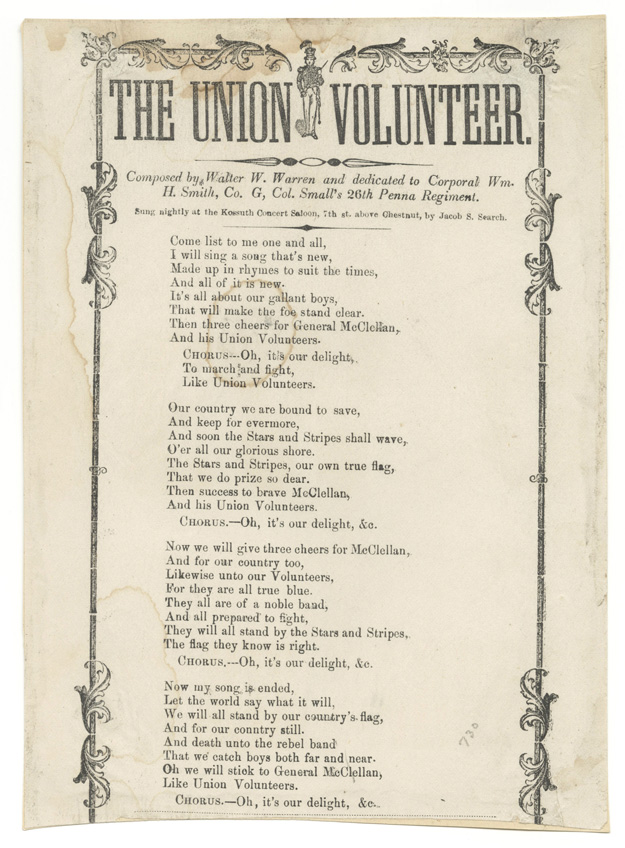PROLOGUE
The red hand of Treason had drawn the veil of disunion
closer and tighter around the National strongholds. The stars and bars the emblems of slavery and
oppression, waved in triumph over a large portion of our common country, and
for the time being, the Northern Copperheads boastingly asserted "that the
North can never subjugate the South,” and that “one southerner was a match for
five northern mudsils." The grand
Army of the Potomac , under its then lionized
commander, General George B. McClellan, had been defeated upon the Peninsula , and had lost heavily in numbers in battle and
from death caused by the malaria of the swamps.
General Pope had met the enemy in the valleys of Northern
Virginia , and the defeat of his Army at the second Bull Run , was the final result.
The Rebels emboldened by their successes, which alone
in the department of the South-west had met with reverses at Shiloh
and Fort Donelson
The Governor of Pennsylvania issued his Proclamation,
calling for volunteers for nine months, as well as for three years. At this period, about the 1st of August 1862 , Charles S.
Davis, Nelson Byers and William H. Schroyer, prompted by patriotic impulses,
recruited a company for the nine months service. This company was not accepted, as by the time
it was fully recruited Gov. Curtin had given official notice that no more nine
month men would be accepted at this time.
Snyder County had then already forwarded Capt. George W. Ryan’s nine
month company, and which was subsequently denominated company ”F,” and attached
to the 131st regiment, P. V. I. Thus the
first company raised by the above named gentlemen was never organized.
The War clouds grew thicker and thicker, and the time
had arrived when every man in the country was required to throw his influence
into the scales against treason and Rebellion.
The hour was without exception the darkest in our Country’s history.
The draft of 1862 appeared inevitable, already had the enrolling
officers issued their notices, which included all able bodied males between the
ages of 18 and 45. At this time another
effort was made to raise another company, this time for three years. A large and enthusiastic meeting was held at
Selinsgrove, in the old “Union” School-house, on the evening of August 25th,
1862, and which was followed by meetings at Boyer’s Tavern, Port Trevorton,
Freeburg, Beavertown, Beard’s Tavern and Kratzersville, which resulted in
recruiting 80 men..
On the 11th and 12th of September, ‘62, those who had
volunteered to enlist for three years, began to concentrate at Selinsgrove,
with Head-quarters at the Keystone Hotel, and by the afternoon of the 12th, all
were present or accounted for.
At one
o’clock , p. m. on Friday, Sept. 12th, the boys were ordered to
“fall in” for the first time, and with raised hands took an oath administered
by John Emmit, Esq., to the effect that “we would obey and respect the
officers about to be elected by a majority of our Votes.” This being
accomplished, the roll was called and the voting done, resulting in the election
of Charles S. Davis, Captain, Nelson Byers and William H. Schroyer, 1st an 2d
Lieutenants respectively. Byers was Davis




